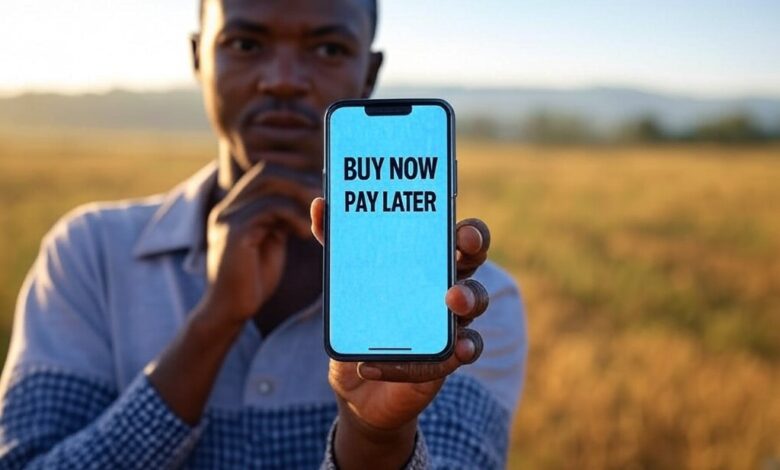
- Kenya’s new law targets predatory Buy Now Pay Later (BNPL) practices with Central Bank oversight.
- Consumers will benefit from greater transparency, fair pricing, and dispute resolution mechanisms.
- Regulation fosters investor confidence and ensures ethical practices in the BNPL sector.
- Challenges include balancing innovation with compliance and addressing consumer education gaps.
On December 11, 2024, President William Ruto signed the Business Laws (Amendment) Bill, 2024 into law, ushering in significant changes to Kenya’s financial landscape. Among its key provisions is the regulation of non-deposit-taking credit providers, particularly those operating in the Buy Now, Pay Later (BNPL) sector. This development addresses long-standing concerns over predatory practices while paving the way for a more structured and equitable credit ecosystem. However, while the law is a landmark achievement, its implications require deeper examination.
The Importance of Regulating Buy Now, Pay Later (BNPL)
Kenya’s Buy Now, Pay Later (BNPL) market has grown rapidly, offering consumers flexible financing options to purchase goods and services. However, this growth has not been without challenges. Many providers have engaged in predatory practices, such as exorbitant markups — with some phones being sold at prices up to 200% above market value under Buy Now, Pay Later (BNPL) schemes. These exploitative practices have trapped consumers in cycles of debt, highlighting the urgent need for regulation.
The new law empowers the Central Bank of Kenya (CBK) to regulate non-deposit-taking credit providers. Key changes include:
- Mandatory Licensing and Oversight:
All Buy Now, Pay Later (BNPL) providers must now obtain licenses from the CBK, ensuring only compliant and ethical operators remain in the market. - Consumer Protection:
Providers are required to disclose clear terms and conditions, making costs and repayment obligations transparent. This move protects consumers from hidden charges and unfair practices. - Affordability Checks:
BNPL providers must assess consumers’ ability to repay, preventing over-indebtedness and financial strain. - Code of Conduct:
CBK will enforce an industry-wide code of conduct to ensure ethical practices and fair treatment of consumers.
Potential Benefits
For Consumers:
- Protection from Predatory Practices:
The law curbs exploitative pricing models, ensuring fair value for consumers. - Transparency and Accountability:
Clearer terms and dispute resolution mechanisms build trust and confidence in Buy Now, Pay Later (BNPL) services. - Broader Access:
Regulation legitimizes the sector, encouraging more consumers to adopt BNPL as a safe financing option.
For Service Providers:
- Market Legitimacy:
Compliant providers can gain credibility, distinguishing themselves from unethical players. - Investor Confidence:
Regulation signals stability, attracting both local and international investments to the sector.
For the Economy:
- Financial Inclusion:
A structured BNPL sector can bring underserved populations into the formal financial system, promoting economic growth. - Innovation and Competition:
Regulation fosters a level playing field, encouraging healthy competition and innovation.
Potential Drawbacks and Challenges
While the new law is largely positive, it is not without potential downsides:
- Risk of Overregulation:
Imposing traditional lending frameworks on Buy Now, Pay Later (BNPL) providers could stifle innovation and make services less accessible. - Operational Costs:
Compliance with CBK’s requirements may increase operational costs for providers, potentially leading to higher consumer fees. - Limited Coverage:
The law’s effectiveness will depend on CBK’s ability to enforce regulations comprehensively across all providers, including informal operators. - Consumer Education Gaps:
Without adequate financial literacy initiatives, consumers may still fall prey to misunderstandings or misuse of BNPL services.
Learning from Global Examples
The United Arab Emirates (UAE) offers a compelling case study in balancing regulation and innovation. In 2022, the UAE introduced a Buy Now, Pay Later (BNPL)-specific regulatory framework that:
- Required clear disclosure of terms.
- Mandated affordability checks to prevent over-indebtedness.
- Ensured robust dispute resolution mechanisms.
Kenya’s regulators could draw lessons from this approach, tailoring rules to the unique dynamics of the local BNPL market while safeguarding consumer interests.
Building a Sustainable Future for BNPL in Kenya
To maximize the benefits of the new law and minimize its challenges, a multi-pronged approach is needed:
- Tailored Regulation:
Distinguish BNPL from traditional credit systems to preserve its accessibility and appeal. - Stakeholder Collaboration:
Foster open dialogue between CBK, providers, and consumers to refine the regulatory framework. - Data Protection:
Ensure consumer data is ethically managed and securely protected, preventing misuse. - Financial Literacy Campaigns:
Educate consumers on the benefits and responsibilities of using BNPL services, empowering them to make informed decisions.
Conclusion
The enactment of the Business Laws (Amendment) Bill, 2024 marks a pivotal step in regulating Kenya’s Buy Now, Pay Later (BNPL) sector and broader non-deposit-taking credit ecosystem. By addressing predatory practices and fostering a fairer, more transparent marketplace, the law lays the groundwork for sustainable growth and consumer trust. However, realizing its full potential will require continued innovation, collaboration, and vigilance. With the right balance, Kenya can build a thriving BNPL sector that promotes financial inclusion and economic resilience.





